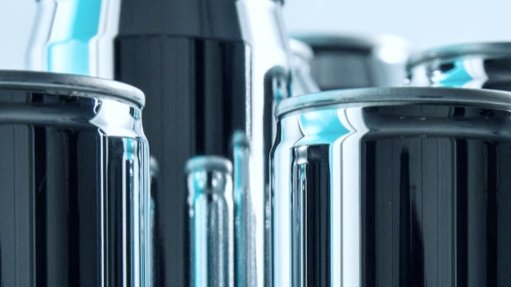A voice too loud for America
Wole Soyinka needs no introduction in Africa – or shouldn’t. The legendary writer, poet and activist became the continent’s first Nobel Prize in Literature laureate back in 1986, and generations of young people have met him through his prose and plays – including the 1959 anti-colonial work, The Lion and the Jewel – which have been fixtures in literature syllabuses for decades.
The sharp-tongued 91-year-old Nigerian citizen has now earned a new line on his résumé: he has become one of the first prominent individuals to lose their US visa under the new “anti-American attitudes” test announced on August 19.
He received a letter from the US consulate in Lagos on October 23 informing him his non-immigrant visa had been cancelled “because additional information became available after the visa was issued”. In plain terms, he has been banned from setting foot on American soil, a development that has provoked both surprise and concern.
Did he do something illegal? On public record, no. Soyinka has denied he has a criminal record, which would normally justify such action. The letter’s vague phrasing – “additional information” – leaves room for speculation whether this was truly about immigration compliance or was tied to his outspoken views.
From his vantage, it is definitely about speech. Recently, he compared Donald Trump to Idi Amin, the brutal dictator who ruled Uganda from 1971 to 1979, during which period 100 000 to 500 000 people were killed. But that is not the first time he has called out the US President. A previous holder of permanent residence in the US, he destroyed his Green Card after the Republican was first elected to the White House in 2016.
Being the humorous man he is, he famously told a British journalist before that act that he would hold his own self-described “Wolexit” – a playful reference to the UK’s pullout from the EU, which was sealed by a June 2016 referendum and implemented from January 31 to December 31, 2020.
Soyinka lived in the US for years, holding teaching posts at prestigious universities, including Harvard and Yale. We will never know if he would have left his homeland for those hallowed institutions of higher learning had he not been forced out. After being detained for 22 months for secretly meeting with those behind the secession attempt that triggered the 1967–1969 Nigerian civil war in a bid to broker peace, he went into exile in 1969, returning in 1975.
His second exile was from 1994 to 1998, during Sani Abacha’s brutal military regime. He fled Nigeria after being declared wanted for treason because of his outspoken criticism of the dictatorship and vocal support for the pro-democracy movement in the country.
There are multiple ironies in the story of Soyinka’s life. First, when he was jailed by Nigeria’s military rulers in 1967 for trying to talk peace, and later when he fled another regime that branded him a traitor for speaking truth to power, the logic was consistent: dissent attracts danger. Now, in 2025 – when he calls Trump a white Idi Amin – the logic remains the same: calling out an American despot has consequences, especially if you are a foreigner.
The second irony concerns freedom of speech, which, to all intents and purposes, remains intact in the US. It’s just that, for foreigners, freedom of movement isn’t guaranteed if that speech is unpalatable. The visa ban clearly conveys the message: Say bad things about us if you wish – just not here.
Irony number three: in 1994, Soyinka sought refuge in the US from the Abacha regime’s authoritarianism, but today he cannot enter the same America because the current administration is not comfortable with his words. To a lesser human being, this would have been poetic irony of the most painful kind – where the asylum that once provided him with safety now defines him as a risk. But he is unfazed, telling a media conference on October 29: “I am not really interested in going back to the US. But a principle is involved. Human beings deserve to be treated decently wherever they are.”
I also recall that, when he tore up his Green Card in 2016, Soyinka famously said: “If you want to build walls, I’d rather be on the outside.”
Now the Trump 2.0 administration has taken him at his word.
Article Enquiry
Email Article
Save Article
Feedback
To advertise email advertising@creamermedia.co.za or click here
Press Office
Announcements
What's On
Subscribe to improve your user experience...
Option 1 (equivalent of R125 a month):
Receive a weekly copy of Creamer Media's Engineering News & Mining Weekly magazine
(print copy for those in South Africa and e-magazine for those outside of South Africa)
Receive daily email newsletters
Access to full search results
Access archive of magazine back copies
Access to Projects in Progress
Access to ONE Research Report of your choice in PDF format
Option 2 (equivalent of R375 a month):
All benefits from Option 1
PLUS
Access to Creamer Media's Research Channel Africa for ALL Research Reports, in PDF format, on various industrial and mining sectors
including Electricity; Water; Energy Transition; Hydrogen; Roads, Rail and Ports; Coal; Gold; Platinum; Battery Metals; etc.
Already a subscriber?
Forgotten your password?
Receive weekly copy of Creamer Media's Engineering News & Mining Weekly magazine (print copy for those in South Africa and e-magazine for those outside of South Africa)
➕
Recieve daily email newsletters
➕
Access to full search results
➕
Access archive of magazine back copies
➕
Access to Projects in Progress
➕
Access to ONE Research Report of your choice in PDF format
RESEARCH CHANNEL AFRICA
R4500 (equivalent of R375 a month)
SUBSCRIBEAll benefits from Option 1
➕
Access to Creamer Media's Research Channel Africa for ALL Research Reports on various industrial and mining sectors, in PDF format, including on:
Electricity
➕
Water
➕
Energy Transition
➕
Hydrogen
➕
Roads, Rail and Ports
➕
Coal
➕
Gold
➕
Platinum
➕
Battery Metals
➕
etc.
Receive all benefits from Option 1 or Option 2 delivered to numerous people at your company
➕
Multiple User names and Passwords for simultaneous log-ins
➕
Intranet integration access to all in your organisation

















